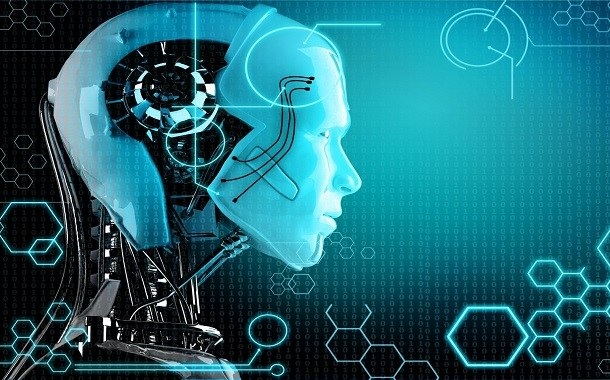Rapid technological progress has contributed to changing the reality of the labor market, especially with the rapid developments in the field of artificial intelligence and automation. It is expected that many jobs and professions will disappear due to artificial intelligence and technology.
According to the “Future Jobs 2020” report by the World Economic Forum, by 2025, 85 million jobs may be replaced globally.
This shift in the job landscape is a growing concern among workers and employees around the world.
In this article, we will review 10 jobs and professions that will disappear due to artificial intelligence and technology, and we will discuss the impact of this transformation on workers and the labor market as a whole.
The information in this article is essential for job seekers, current employees, and companies as they navigate the rapidly evolving job market.
Note: Automation is a term used for everything that works by itself without the need for human intervention.
It is worth noting that automation aims to increase production, as the machine works at speed and accuracy hundreds of times more than the human employee.
The most important job characteristics that are likely to be replaced by AI in Future
1. Repetitive tasks: Jobs that involve repetitive and routine tasks such as data entry can be time consuming and error prone, and require a human employee to manually enter large amounts of information into a computer system.
In this case AI algorithms can perform these tasks quickly, accurately, and with minimal errors.
2. Making decisions based on specific rules such as preparing taxes: For example, artificial intelligence algorithms can be programmed to analyze an individual’s financial information, such as his income and expenses, to calculate his tax liability.
This eliminates the need for human input and reduces the risk of human error, as the AI algorithm can accurately calculate tax liabilities based on the latest tax laws and regulations.
3. Physical tasks: Jobs that require physical tasks such as manual labor or working on an assembly line, can also be replaced by robots and machines designed to perform these tasks more efficiently and safely.
4. Predictable work: Jobs with well-defined and predictable processes, such as scheduling appointments or routing calls, are also subject to automation. AI algorithms can be programmed to perform these tasks more efficiently and accurately than human operators.
Telemarketing
Telemarketers play an important role in direct marketing by reaching potential customers and promoting products or services.
They are responsible for making frequent calls to customers, scheduling appointments, making sales and gathering customer information.
With the advent of artificial intelligence and automation this functionality is likely to disappear, and be replaced by chatbots that have the ability to automate many routine tasks carried out by telemarketers.
For example; A study by Accenture found that AI algorithms can perform these tasks 24 times faster, and with a much higher rate of accuracy, when compared to human staff.
Customer service
Customer service employees play an important role in many industries, as they are the primary point of contact between a company and its customers. They handle customer inquiries, resolve problems, and provide information on products and services.
Customer service is one of the jobs and professions that will disappear due to artificial intelligence and technology. It can be replaced by chatbots, as it can handle customer inquiries, solve their problems, and make recommendations for products and services three times faster than humans, according to a study conducted by Accenture.
Translation
Translation is one of the ancient jobs that accompanied man during the course of his development, and played an important role in transmitting information between civilizations and linking peoples with each other.
However, with the advancement of technology, the labor market has already begun to change. A large part of the work of translators is done today by means of programs and applications such as Google Translate, for example.
It is a free tool used by millions of people around the world to translate from one language to another, and it is employed in various fields including business, education and tourism.
According to a report by Common Sense Advisory; The language translation market is expected to grow from $2.31 billion in 2018 to $5.52 billion by 2023, due in large part to the increasing use of AI-powered translation tools.
Data entry
It is one of the jobs spread in many business sectors and various companies, it depends on filling and organizing the company’s databases in addition to constantly reviewing and modifying the data in order to verify its integrity and correctness.
A real-world example of AI replacing data entry staff can be seen in the financial services industry. Many banks and financial institutions have relied on AI-powered software to automate back-office processes, and this has significantly reduced the time and cost associated with manual data entry.
According to a report by MarketsandMarkets; The global data entry services market is expected to grow from USD 3.5 billion in 2018 to USD 5.2 billion by 2023.
Cashier
You may have heard of Amazon Go, which allows customers to shop for groceries without going through the cashier to pay.
Amazon is not the only company that adopts the automated selling system, but there are many other stores that follow it, in addition to the spread of electronic markets on a large scale.
Among the examples of the uses of automation are also mentioned:
a) Self-checkout kiosks: Many retailers already use self-checkout kiosks in their stores, which are operated by customers themselves.
b) Automated payment systems: Some stores use automated payment systems, such as mobile wallets that allow customers to pay for their purchases using their smartphones, reducing the need for human cashiers.
In a survey conducted by Accenture; 60% of consumers said they would prefer self-service payment options, and 44% said they would be willing to pay more for goods if it meant avoiding lines and interacting with cashiers.
Driving
About 8 out of 10 drivers face a 50% or higher risk of losing their job.
For example; Companies like Amazon and UPS have already begun experimenting with self-driving delivery vehicles to deliver packages to customers. In addition, some restaurants and grocery stores are using drones to deliver food and products, reducing the need for human delivery drivers.
According to a report by PricewaterhouseCoopers, it is estimated that more than two million delivery driver jobs could be replaced by autonomous delivery vehicles in the next 10 to 15 years.
Bank tellers
Do you remember the last time you visited the bank? It may have been a long time ago, you no longer need to spend time waiting for your turn due to the advent of online payment systems and ATMs that facilitated the task.
Artificial intelligence has replaced many bank tellers’ jobs. The advent of online banking, mobile banking apps, and automated teller machines (ATMs) has reduced the need for bank tellers in physical branches.
Customers can now perform a variety of transactions from their mobile device or computer, reducing the need for personal interaction with bank tellers.
Fast food sector jobs
Jobs related to the fast food sector are also among the jobs and professions that will disappear due to artificial intelligence and technology. Many fast food restaurants have already started adopting self-service kiosks that allow customers to submit their own orders and pay without the need for human interaction.
In addition to automated food preparation, AI-powered machines and robots are being used in fast food kitchens to automate food preparation tasks such as grilling burgers, frying chicken, and making pizza. This reduces the need for human labor and improves the speed and accuracy of food preparation.
Artificial intelligence is also a great tool for collecting data and identifying restaurant problems, which helps to better understand customers’ needs and thus improve their experience, and it can be used to perform predictive sales analyzes to improve prices and plan accurately for the future.
Factory employment
The advent of automation and artificial intelligence has led to the replacement of many factory workers by robots and automated systems, as they are able to perform manual labor tasks such as assembling, packing, and operating machines faster and more accurately.
One example of this trend is the automotive industry, where robots are becoming increasingly common in assembly and production processes.
According to the International Federation of Robotics; The automotive industry was the number one adopter of industrial robots in 2018, accounting for nearly 29% of assembly lines globally.
Companies such as Foxconn, a leading electronics manufacturer, have implemented large-scale automation systems in their factories, which has resulted in a significant reduction in the number of workers.
Librarianship
With the development of technology and the increase in reliance on computers and mobile phones for reading… it is expected that the librarian’s job will disappear, especially with the availability of information and e-books on the Internet.
Many libraries now have self-checkout machines that allow patrons to check out their own books reducing the need for librarians’ assistance.
In addition, many libraries are now using AI-powered systems to manage their collections, allowing librarians to focus on more strategic tasks such as running information literacy campaigns and outreach to the community.
We have previously reviewed the most important jobs and professions that will disappear due to artificial intelligence and technology, but this does not necessarily mean that robots will completely dominate the labor market, as the human role is essential and indispensable.
Some jobs that are not likely to be replaced by AI soon
Creative jobs such as graphic designers, writers, and artists.
Jobs that require emotional intelligence such as physicians, social workers, and human resource personnel.
Jobs that require solving complex problems, such as researchers and lawyers.
Leadership positions such as business managers and presidents.
Jobs in fields that involve significant cultural or social knowledge such as archaeologists, anthropologists, and teachers.
Note: While AI and automation may not completely replace these jobs, they can still influence and change the nature of work done in these areas.
Conclusion
The advancement of AI technology is rapidly changing the labor market, and causing major changes in various industries. But it is important to understand that AI can only automate specific tasks, and it cannot replace human creativity, empathy, and critical thinking.
To keep pace with the changing job market, it is advised to upgrade skills and adapt to new technologies and changes.
So let me present to you a set of skills that must be developed in the era of artificial intelligence:
- Leadership Skills and Decision Making.
- Digital and Technical Skills.
#Jobs #Required #Worldwide #Disappear #Due #Future







